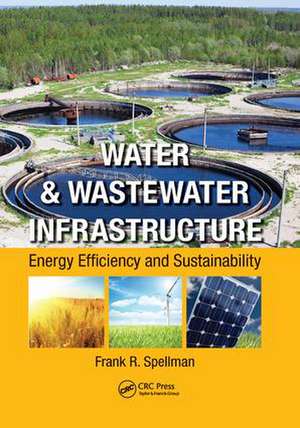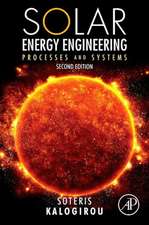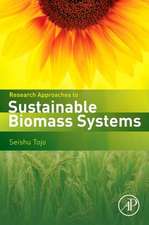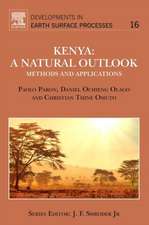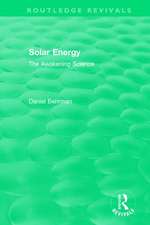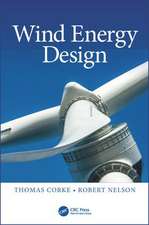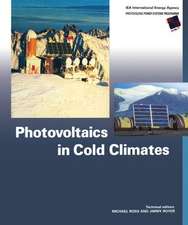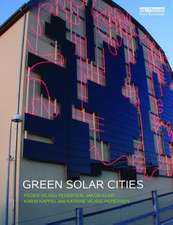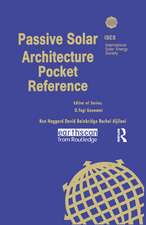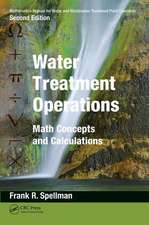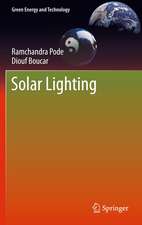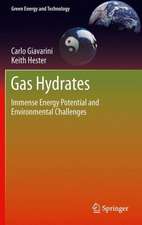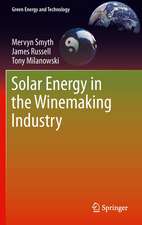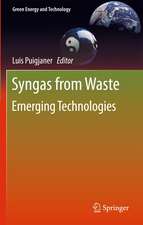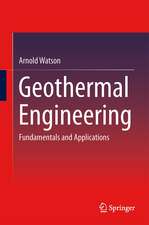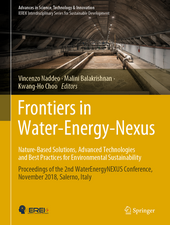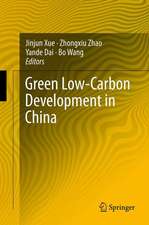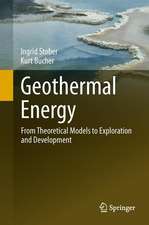Water & Wastewater Infrastructure: Energy Efficiency and Sustainability
Autor Frank R. Spellmanen Limba Engleză Paperback – 18 sep 2018
The text begins with brief descriptions of the water and wastewater treatment industries. It then describes some of the basics of energy and discusses what planning for a sustainable energy future in water and wastewater treatment plants entails. The author explores energy-saving options and provides case studies to demonstrate how some facilities have used equipment, technology, and operating strategies to save money and reduce their impact. The energy-efficient technologies include combined heat and power (CHP), gas turbines, microturbines, reciprocating engines, steam turbines, and fuel cells. The author also addresses biomass power and biogas.
The section on sustainability and renewable energy covers hydropower, solar power, and wind power as well as energy conservation measures for treating wastewater. Nine appendices provide individual case studies that present evaluations of energy conservation measures, results, payback analysis, and conclusions. This book addresses the challenges faced by water and wastewater treatment facilities by examining how they can operate in ways that provide economic and environmental benefits, save money, reduce environmental impact, and lead to sustainability.
| Toate formatele și edițiile | Preț | Express |
|---|---|---|
| Paperback (1) | 377.01 lei 6-8 săpt. | |
| CRC Press – 18 sep 2018 | 377.01 lei 6-8 săpt. | |
| Hardback (1) | 885.75 lei 6-8 săpt. | |
| CRC Press – 12 mar 2013 | 885.75 lei 6-8 săpt. |
Preț: 377.01 lei
Preț vechi: 481.05 lei
-22% Nou
Puncte Express: 566
Preț estimativ în valută:
72.14€ • 75.32$ • 59.71£
72.14€ • 75.32$ • 59.71£
Carte tipărită la comandă
Livrare economică 05-19 aprilie
Preluare comenzi: 021 569.72.76
Specificații
ISBN-13: 9781138382213
ISBN-10: 1138382213
Pagini: 463
Ilustrații: 64
Dimensiuni: 178 x 254 mm
Greutate: 0.82 kg
Ediția:1
Editura: CRC Press
Colecția CRC Press
ISBN-10: 1138382213
Pagini: 463
Ilustrații: 64
Dimensiuni: 178 x 254 mm
Greutate: 0.82 kg
Ediția:1
Editura: CRC Press
Colecția CRC Press
Cuprins
The Basics. Introduction. Characteristics of the Wastewater and Drinking Water Industries. Water, Wastewater, and Energy. Planning for a Sustainable Energy Future. Energy-Efficient Equipment, Technology, and Operating Strategies. Energy-Efficient Equipment. Energy-Efficient Operating Strategies. Energy-Efficient Technology. Combined Heat and Power (CHP). Gas Turbines. Microturbines. Reciprocating Engines. Steam Turbines. Fuel Cells. Biomass Power and Heat Generation. CHP and Wastewater Biogas. Sustainability Using Renewable Energy. Macro- and Microhydropower. Solar Power. Wind Power. Energy Conservation Measures for Wastewater Treatment. Appendices. Glossary. Index.
Notă biografică
Frank R. Spellman, Ph.D., is a retired U.S. Naval Officer with 26 years of active duty, a retired environmental safety and health manager for a large wastewater sanitation district in Virginia, and a retired assistant professor of environmental health at Old Dominion University, Norfolk, Virginia. He is the author or co-author of 75 books, with more soon to be published. Dr. Spellman consults on environmental matters with the U.S. Department of Justice and various law firms and environmental entities around the globe.
Recenzii
"Water & Wastewater Infrastructure: Energy Efficiency and Sustainability is a recommendation for college-level reference collections in science and nature which are strong in environmental engineering, and describes various water and wastewater treatment approaches and what it means for sustainable energy in the area. Chapters provide case studies of facilities that have used technology to reduce their environmental impact, and point out various alternative power options and sustainable and renewable energy sources for treating wastewater. From conservation measures and analysis to special wastewater and water challenges, this surveys the extent of the industry's challenges and approaches to water and wastewater management, and is key for any collection strong in environmental engineering applications."
—Midwest Book Review, October 2014
"… a recommendation for any environmental engineering collection and offers descriptions of the methods and applications of the water and wastewater industries. It then proceeds to discuss changing energy needs and provides case studies to show how some facilities have used new equipment and technology to save money by becoming more energy efficient. … A 'must' for environmental engineers and any involved in wastewater management processes.
—California Bookwatch, November 2013
—Midwest Book Review, October 2014
"… a recommendation for any environmental engineering collection and offers descriptions of the methods and applications of the water and wastewater industries. It then proceeds to discuss changing energy needs and provides case studies to show how some facilities have used new equipment and technology to save money by becoming more energy efficient. … A 'must' for environmental engineers and any involved in wastewater management processes.
—California Bookwatch, November 2013
Descriere
This book addresses the challenges faced by water and wastewater treatment facilities by examining how they can operate in ways that provide economic and environmental benefits, save money, reduce environmental impact, and lead to sustainability. It discusses the best management practices, innovations, cost-cutting measures, and energy efficiency procedures. With energy use now the highest operational cost factor in water plants, the text pays considerable attention to replacing conventional energy supplies with renewable energy sources, discussing these sources and their possible application in detail.
